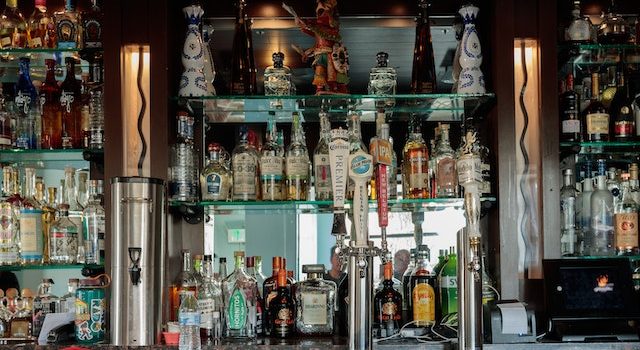
Introduction:
Alcohol has long been a part of social gatherings, providing relaxation and enjoyment for many. Still, some individuals start off with occasional drinking and end up developing a dependence on it. Getting away from alcohol addiction is very crucial for our overall health and mental state. It can also allow us to avoid being dependent on medicines. Join us in exploring this article where we will learn about the benefits of giving up alcohol, understand how depending on medication is linked to being addicted to alcohol, and uncover strategies for breaking free from both dependencies.
Knowing how alcohol dependence develops
Becoming dependent on alcohol is a complicated problem that happens slowly as time goes by. It involves physical and psychological reliance on alcohol, leading to the inability to control or stop drinking despite negative consequences. The cycle of alcohol dependence often begins with occasional social drinking, but as tolerance builds and cravings intensify, individuals find themselves consuming alcohol more frequently and in larger quantities. This ongoing circle continues addiction and can bring about harmful consequences for your health.
The Link Between Alcohol Dependence and Medication Reliance
The connection between alcohol dependence and medication reliance is a significant concern. Using lots of alcohol over a long period harms some important parts of your body like the liver, brain, heart, and immune system. Because of their alcohol dependence, people may have health problems that need medicine to help. Liver damage, for example, may necessitate medications to support liver function and prevent further deterioration. Besides, when someone is addicted to alcohol, they might also have mental health problems like feeling anxious or sad. These conditions might need medication as well as support for alcohol addiction. If someone decides to stop drinking alcohol, they can minimize the need for medicine in treating the associated health complications.
Stopping drinking alcohol to live a life without medication
Quitting alcohol is a challenging but transformative decision that offers numerous benefits for physical, mental, and emotional well-being. Here are some strategies to help break the cycle of alcohol dependence and avoid reliance on medications:
Seek professional help: Getting advice from a healthcare professional or addiction specialist is important when you are working on getting better. They can offer personalized treatment plans, therapy options, and assist in managing withdrawal symptoms.
Build a strong support network: Be around people who understand and support your choice to stop drinking. Joining support groups like Alcoholics Anonymous (AA) can provide a sense of community, accountability, and valuable insights from individuals who have successfully overcome alcohol addiction.
Focus on healthy coping mechanisms: Involve yourself in actions that boost both your physical and mental well-being – things like exercising often, trying mindfulness exercises , enjoying activities you love to do for fun , or simply spending time with the people who mean the most to you. Discovering better ways to handle stress and emotional difficulties helps us avoid the urge to use alcohol.
Set achievable goals: Break the journey of quitting alcohol into smaller, manageable steps. Celebrate each milestone reached, reinforcing your commitment to a medication-free life.
Remember, recovery is a personal and unique process, and setbacks may occur. It’s essential to persevere and seek support during challenging times.
Conclusion:
Breaking the cycle of alcohol dependence not only brings freedom and improved well-being but also reduces the reliance on medications to manage alcohol-related health complications. When individuals quit drinking alcohol, they become the ones in control of their lives once more, regain their physical and mental health, and live a life without relying on medication. Always remember that reaching out for professional guidance,taking advantage of the support from loved ones,focusing on healthy strategies for managing emotions,and setting attainable objectives are all crucial steps on the path towards conquering an addictionto alcohol. The path could be hard, but the advantages of not relying on medicines and experiencing better overall health are absolutely valuable. Seize the opportunity to break the pattern, have a healthier existence, and uncover your authentic identity free from the hold of alcohol. By being determined, having support, and being committed to change, you can conquer alcohol dependency, refrain from depending on medications, and begin a happier and more satisfying future.










